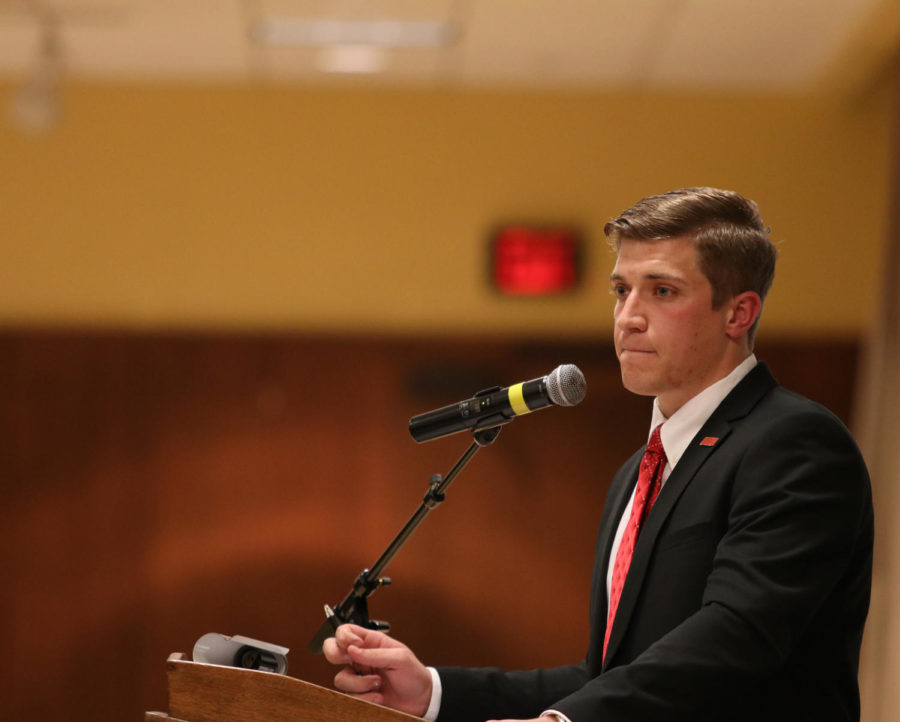Medical amnesty: Staudt pushes for student immunity
On Tuesday Nov. 29 ISU Student Body President Cole Staudt, addressed the public about topics like dead week, mental health, underage drinking, and tuition increase. Following the speech he opened up the floor to a ‘town hall’ event where students could discuss ways to unify campus and decrease racial discrimination.
February 23, 2017
When stuck between a medical emergency and legal consequences, which road will you take? Student Government President Cole Staudt doesn’t believe that you should have to choose.
Staudt, along with several other student supporters from Iowa State and the University of Iowa, attended an open forum-style meeting at the Capitol on Thursday in support of a medical amnesty bill.
Medical amnesty would provide underage drinkers with immunity from legal prosecution in the case of a medical emergency. Thirty-six states have already implemented this law, leaving Iowa as one of 14 that have not.
Many students, when faced with a medical emergency inflicted by or related to the underage consumption of alcohol, fear the legal consequences. This worry leads them to avoid seeking help for themselves or others.
This subcommittee meeting allowed Staudt to share his personal story about the dangers that underage students face when trapped between legal prosecution for underage drinking and medical emergencies.
When a friend was on the verge of alcohol poisoning, Staudt chose to put the friend to bed, rather than seeking medical care, due to potential prosecution. His friend’s near-death experience that followed presented him with a strong desire to find a solution to this problem.
“I think that really resonated with them,” Staudt said. “It showed them that there are real students that could be impacted by this.”
In the spirit of the open forum, other proposers, students and lobbyists were allowed to provide input and comments regarding the proposition.
Several unexpected allies expressed their support, including representatives from the Iowa Association for Justice, Staudt said.
Staudt said no one opposed the bill as a whole, but there were some concerns expressed about the inclusion of drug-related medical amnesty.
Staudt said he and the other proposers made it clear to the subcommittee, upon opposition, that the main goal of the bill pertained to alcohol-related incidents, as that is the major issue that is being faced.
“I’m pretty confident that the alcohol piece [of the bill] is going to go on,” Staudt said.
After the meeting, the three senators of the subcommittee plan to meet privately to discuss whether the bill will be brought to the judiciary committee meeting next week.
“If it’s going to move forward, it’s going to happen by March 1,” Staudt said.
This is the deadline for bills to be reviewed. Within the next week, the subcommittee will make a decision about whether to move the bill to the next level or oppose it.
“I’m feeling really good about it,” Staudt said.
He expressed his confidence that the bill has enough support to go on.
“We’re really trying to save lives,” Staudt said.







